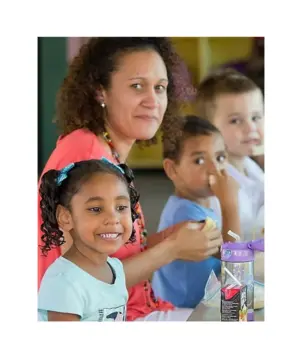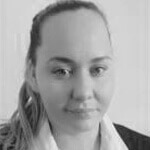Introduction
This module describes the performance outcomes, skills and knowledge required to identify different perspectives on Aboriginal and/or Torres Strait Islander peoples’ cultures, develop an understanding of the local and broader cultural contexts, and use the identified information to embed culturally appropriate experiences, interactions, behaviours, and physical environments into daily practice with children.
Unit Overview
What is this module all about?
This module mainly gives details about the ways to improve awareness of Aboriginal and/or Torres Strait Islander peoples’ cultures in the daily practice with children. Also explains about the strategies to promote children’s understanding of Aboriginal and/or Torres Strait Islander peoples’ cultures and languages.
Who could attend the course?
Candidates who wish to work in early childhood centres as childcare provider and caregiver. This module is applicable for educators who work in regulated children’s education and care services or schools in Australia, including those who identify as Aboriginal and/or Torres Strait Islander and educators from other cultural backgrounds.
IHNA (Institute of Health and Nursing Australia) is trusted by more than 14???+ students and has been committed to providing excellence in education and training to meet the needs of the community since 2007.


General skills outcomes
By the end of this module, students should be able to:
- Identify perspectives on Aboriginal and/or Torres Strait Islander peoples’ cultures.
- Investigate the local context for Aboriginal and/or Torres Strait Islander peoples’ cultures.
- Contribute ideas for embedding Aboriginal and/or Torres Strait Islander peoples’ cultures in daily practice.
- Support children’s understanding and respect.
IHNA Online Admission requirements
There are no formal entry requirements for this qualification; however, applicants should demonstrate ability to perform tasks as required by the industry. Also, you will need to have sufficient English language skills to complete the competency based first aid training.
Prerequisites
No prerequisites units required.
Assessment
Theory based assessment which includes multiple choice questions.
Career Opportunity
After the successful completion of the course the candidates may gain employment as Early childhood educators in various places such as:
- Day care center’s
- Family day care
- Pre-schools
- kindergartens
“A convenient way to build your employability skills and advance your career”

What will I study?
-
ISDIV0001
Work with diverse people
-
ISECE0030
Support Inclusion & Diversity
-
ISECE0054
Encourage understanding of Aboriginal Torres Strait Islander Peoples’ cultures
-
ISWHS0001
Participate in Workplace Health and Safety
-
ISECE0031
Support Children’s Health, Safety and Wellbeing
-
ISPRT0001
Identify and Respond to Children and Young People at Risk
-
ISAID0012
Provide First Aid in an education and care setting
-
ISECE0055
Meet Legal and Ethical Obligations in Children’s Education & Care
-
ISECE0056
Work Effectively in Children’s Education & Care
-
ISECE0038
Observe Children to Inform Practice
-
ISPRP0003
Reflect and improve own professional practice
-
ISECE0034
Use an approved Learning Framework to guide practice
-
ISECE0032
Nurture Babies and Toddlers
-
ISECE0037
Support children to connect with the natural environment
-
ISECE0033
Develop Positive and Respectful Relationships with Children
-
ISECE0035
Support the holistic learning and development of children
-
ISECE0036
Provide Experiences to Support Children’s Play and Learning
-
CHCDIV001
Work with diverse people
-
CHCPRP003
Reflect and improve own professional practice
Course Module
Successful completion of this course requires you to complete a total 17 Units –
- 15 core units
- 2 elective units

* Aboriginal and Torres Strait Islanders’ students are encouraged to apply.
Why IHNA Online ?
- Competency based training underpinned by adult learning principles
- Scholarships are available
- Access to 24*7 Online Library
- Experienced educators with industry
- Easy Payment Options
- Finalist and Winner of national and international training award
- Networking Opportunities with peak bodies and industries
- IHNA Online Alumnus Status
- Dedicated Student Support Team
- Work Integrated Learning (WIL) – learn as you practice
01

Adam Gardoll
The staff in my opinion are all supportive and friendly and I am enjoying my studies here.
02

Ashley Hartnett
The facilities are continually improving and the support I have acquired is unlike any other school.
03

Baby Aurora Trijo
The dedication, support and motivation of each staff member is great and enables students like myself to achieve their dream.
04

Christian Pascaran
The Staff/educators were very helpful to students when it came to addressing our problems.
05

Jismy Ouseph
I am really thankful to IHNA which gave me the confident and exposure to my nursing career.
Student Testimonial
It is always a pleasure to listen to the stories our students say about
us!
Take a sneak peak at the inspiring stories of our students, which often leave us in tears of
intense happiness and give us strength and hope
Pathways
There are no pre-requisites or any other training package entry requirements for this course.
Pathways to this Course Level III in Early Childhood Education and Care
- Diploma of Early childhood Education and Care
- Diploma of School Aged Children and Care
FAQ’s
Any other questions in your mind – let us give you some more clarity with the following FAQs:

To become an early childhood educator the starting requirement will be to complete a 4-years Bachelor of Education (Early Childhood) or similar Course from a recognised institution. On the other hand, you also have a choice to complete a 2 to 3 years Diploma or certificate course of Early Childhood Education. For more details you can check @
https://ihnaonline.edu.au/courses/ihnas-l3002-level-iii-in-early-childhood-education-and-care/You learn a plethora of concepts and skills in a certified childhood educator course some of the skills include
- Developing curriculum and study material
- Teaching healthy and safety habits in a proper manner
- Using principles of child psychology
- Human overall development
- Helping young children with language development who has difficulty in speaking
